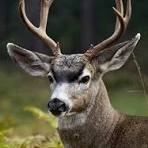How to Safely Handle Wildlife Encounters in Your Alaskan Backyard
April 9, 2025 2:05 pm
Alaska’s majestic wilderness draws visitors from around the world, but for local homeowners, it’s not uncommon for that wild beauty to show up right in the backyard. From moose ambling through gardens to black bears rummaging in garbage bins and foxes slinking through the treeline, living in Alaska often means sharing your space with wildlife. While these experiences can be awe-inspiring, they also pose safety concerns and require a thoughtful approach.
Knowing how to manage these encounters is essential for protecting both people and animals.
Common Wildlife Encounters in Alaskan Backyards
Alaska is home to some of North America’s most iconic wildlife. Depending on your location and the season, your backyard might be visited by various creatures—some fascinating and others potentially hazardous.
Identifying Moose, Bears, and Other Common Wildlife

Moose
The moose is one of the most frequent and largest backyard visitors in Alaska. Standing over six feet tall at the shoulder and weighing up to 1,500 pounds, moose may appear docile but can be aggressive, especially when protecting their young or during rutting season in the fall. In winter, food scarcity might drive them closer to homes, where they nibble on shrubs and trees.
Signs of moose presence:
- Stripped bark on trees
- Large hoof prints in soft soil or snow
- Droppings that resemble clusters of small pellets
Bears
Both black and brown (grizzly) bears inhabit Alaska and may wander into residential areas searching for food, especially in spring and fall. Bears are highly intelligent and can associate human homes with easy meals if garbage, pet food, or birdseed is accessible.
Signs of bear activity:
- Overturned garbage cans
- Large paw prints or claw marks
- Shredded fences or storage sheds
Small Mammals and Other Wildlife
Other backyard visitors may include:
- Foxes, which may den under decks or sheds
- Beavers, especially near waterways, known to dam streams and fell trees
- Squirrels and raccoons, which may find their way into attics or garages
- Porcupines, which can damage wooden structures or chew on vehicle wiring
These smaller animals may seem harmless but can cause significant property damage and even carry diseases like rabies or parasites.
Safety Tips for Managing Wildlife Around Your Home
Whether you’re face-to-face with a moose or you’ve noticed signs of wildlife around your property, your safety—and the safety of the animal—should always be your top priority.
What to Do When Wildlife Becomes a Threat to Safety
Never Approach or Feed Wild Animals
Even seemingly calm animals can act unpredictably. Feeding wildlife not only increases the risk of aggression but also conditions them to associate humans with food, which can lead to dangerous future encounters.
Secure Trash and Compost
Use bear-resistant garbage cans with tight-fitting lids. Avoid putting food scraps in compost piles unless you use a closed bin. Clean grills and outdoor cooking areas after each use.
Remove Food Sources
Keep pet food indoors. If you feed birds, be cautious about seed spills. Store livestock feed, garden produce, and other attractants in wildlife-proof containers.
Maintain a Clean Yard
Trim brush, store firewood away from your home, and repair fencing to eliminate potential shelter and hiding spots for small mammals or predators.
Use Motion-Activated Lights or Alarms
Wild animals often avoid bright lights and sudden noises. Installing motion-activated systems can help deter nighttime visitors.
Teach Children About Wildlife Safety
Children should understand the importance of not approaching or chasing wildlife. Always supervise young kids when playing outside, especially in wooded or brush-covered areas.
Know When to Call for Help
If an animal appears aggressive, sick, injured, or is posing a direct threat to your family or pets, it’s time to call a professional wildlife removal service. Attempting to handle the situation on your own can be extremely dangerous.
The Role of Professional Wildlife Removal Services
When prevention fails and wildlife becomes too close for comfort, it’s time to turn to the experts. Professional wildlife removal companies provide the tools, expertise, and humane strategies needed to resolve the issue safely and effectively.
Humane and Effective Solutions for Wildlife Control
Expert Identification and Risk Assessment
At Pied Piper Pest Control, we start with a thorough inspection of your property to identify the animal(s) involved, assess the risk, and understand the points of entry or attractants that may be luring wildlife in. Our highly trained technicians know how to read signs, track behavior, and develop tailored strategies.
Live Trapping and Relocation
In many cases, humane live traps are used to capture and relocate animals safely. This method is especially useful for animals like squirrels, raccoons, or porcupines that have taken up residence in sheds or attics. We follow all state and federal guidelines for ethical wildlife handling and relocation.
Exclusion and Prevention
Once the immediate threat is removed, prevention becomes key. Pied Piper Pest Control provides expert exclusion services to seal entry points and protect your home from future invasions. From reinforcing vents to installing chimney caps and repairing siding, we help fortify your home against repeat wildlife intrusions.
Ornamental Tree and Property Protection
Moose, beavers, and porcupines are notorious for damaging trees and shrubs. Our team offers tree banding, repellents, and other proven techniques to preserve your landscaping while discouraging unwanted visits.
Squirrel and Rodent Services
While often overlooked, squirrels and rodents can cause extensive damage to wiring, insulation, and structural components. Our technicians specialize in capture and exclusion methods specifically designed to deal with Alaska’s toughest critters.
Safety for You and the Animal
Professional wildlife removal prioritizes the safety of everyone involved. Our team is trained to deal with unpredictable wildlife behaviors and uses the proper protective equipment and techniques to minimize stress and injury for the animal.
Why Choose Pied Piper Pest Control?
As Alaska’s premier pest and wildlife removal experts since 1965, Pied Piper Pest Control offers the experience and professionalism you can trust. We’re proud to be a locally owned and operated small business that understands the unique challenges of living in the Last Frontier.
Our team is not only passionate about wildlife but also about keeping our fellow Alaskans safe and comfortable in their homes. Whether it’s a moose in your driveway or squirrels in your attic, we bring decades of experience and a deep respect for nature to every job.
We offer:
- Prompt, professional service
- Highly trained and knowledgeable technicians
- Humane wildlife handling and removal
- Rodent, insect, and tree pest solutions
- Long-term prevention strategies
Let the Experts Help You Live Safely with Alaska’s Wildlife
Sharing your environment with Alaska’s remarkable wildlife is part of what makes living here so special. But when wild animals wander too close for comfort, you don’t have to face it alone. Taking proper precautions and knowing when to call for help is the best way to maintain a peaceful coexistence.
If you’re dealing with persistent wildlife problems or a sudden and serious encounter, trust the experts at Pied Piper Pest Control for safe, effective, and humane wildlife removal. We’ve been helping Alaskans handle everything from bears to squirrels for over 50 years, and we’ll always treat your home with the care and respect it deserves.
Don’t risk your safety or the well-being of Alaska’s incredible wildlife. Contact us today to schedule a consultation or emergency service. Let us help you take back your backyard, one paw print at a time.
Categorised in: Wildlife Control
This post was written by Ken Perry

Comments are closed here.